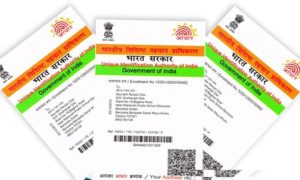New Delhi: Banks have been told to speed up the process of opening special rupee vostro accounts (SRVA) of correspondent banks of partner trading countries. The finance ministry on Wednesday held a meeting with officials from Reserve Bank of India, the commerce and industry minister and the ministry of external affairs.
Read More:-ICICI Bank share price hits all-time high as market rebounds after two sessions
The SRVAs are aimed at promoting cross-border trade in rupees instead of the US dollar. The central bank had in July issued a circular on cross-border trade transactions, making an additional arrangement for invoicing, payment and settlement of exports/imports in Rupee.
Apart from banks, the department of commerce has also been asked to engage with exporters and importers on making payment via SRV accounts and negotiate rupee trade with trade partners. The Centre has proposed allowing set-off of export receivables against import payables along with issue of bank guarantee for trade transactions.
Read More:-When SBI misread Kannada numeral on cheque – Here is what happened next
This would decrease transaction costs, do away with the requirement for settlement through convertible currency and also eliminate foreign exchange risk for exporters and importers, according to a detailed recommendation shared with related ministries.
Officials privy of the development told Economic Times that the move will lessen the pressure on rupee and significantly help partner countries with balance of payment issues.
Read More:-Axis Bank Fixed Deposit rates vs SBI Fixed Deposit rates: Check out latest rates, withdrawal clauses
The finance ministry also asked Indian embassies and consulates to spread the word about the framework. Using the framework, Indian exporters will be paid in Indian Rupee from the balances in the designated Special Vostro account of the correspondent bank of the partner country.
“Indian importers undertaking trade through this mechanism shall make payment in INR, which shall be credited into Special Vostro account of correspondent bank of the partner country against the invoices for the supply of goods or services from the overseas seller /supplier,” RBI’s July circular stated.





































